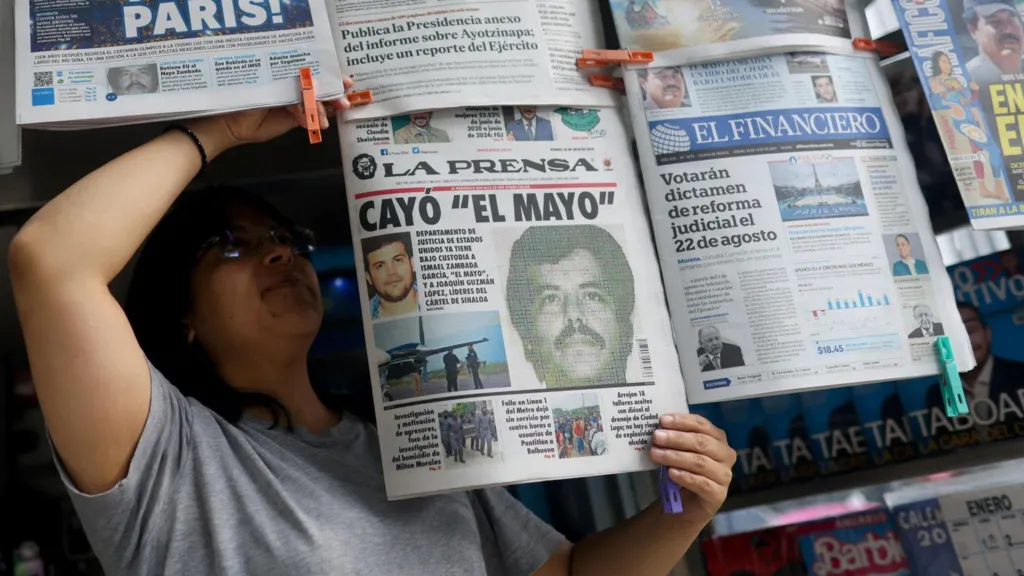ISMAEL ‘El Mayo’ Zambada is one of the most notorious names in drug war history, synonymous with the fearsome power and corrosive influence of the most important drug cartel in the world.
The last of an original generation of drug cartel leaders, he created the Sinaloa Cartel alongside Joaquin ‘El Chapo’ Guzman from the remnants of the Guadalajara Cartel after it collapsed in 1989.
But unlike his infamous partner who was twice jailed and escaped, El Mayo was able to evade capture for some 35 years. Until now.
US authorities arrested him in El Paso, Texas on Thursday. He has already pleaded not guilty to multiple charges in federal court in Texas.
He was lured to the US as part of an elaborate sting operation, masterminded by the son of his former partner, El Chapo. Joaquin Guzman Lopez, one of the heirs to El Chapo’s operation, was arrested alongside Zambada having led him to believe he was travelling to northern Mexico to look at prospective properties for clandestine airstrips.
“Are you worried of being captured?” Zambada was asked in 2010 by the late Mexican journalist, Julio Scherer García, who had travelled deep into the mountains for an unprecedented interview with the drug lord.
“The idea of being jailed gives me panic,” he answered. “I’m not sure I have what it takes to kill myself. I’d like to think I do and that I’d take my own life.”
When it came to it, however, either he didn’t have the means or the opportunity.
For someone who exercised such caution over so many years, it seems extraordinary that Zambada was duped aged 76. Perhaps it was always going to take something unique to see him in custody.
“It doesn’t surprise me that Zambada didn’t go willingly,” says Mike Vigil, a former DEA agent. “He is in his 70s, in poor health and already said that prison was his greatest fear.”
The arrests – and possible plea deal between the sons of El Chapo, known as Los Chapitos, and the US Government – begs the question of who will take control of the Sinaloa Cartel.
After El Chapo Guzman was arrested and extradited to the US in 2016, a round of bloodletting began as rival factions wrestled for control of territory as well as fought opposing drug gangs who sensed weakness.
Even more shocking, and violent, was the response of the Sinaloa Cartel’s foot soldiers when their leader, Ovidio Guzman Lopez, was arrested in October 2019.
After he was detained, hundreds of gunmen descended on the city of Culiacan and opened fire on civilian, police and military targets with .50 calibre weapons and rocket launchers. Eventually, the authorities handed Ovidio Guzman back to his men to bring the fighting to an end.
He was later re-arrested, extradited and is currently awaiting trial in a US prison.







